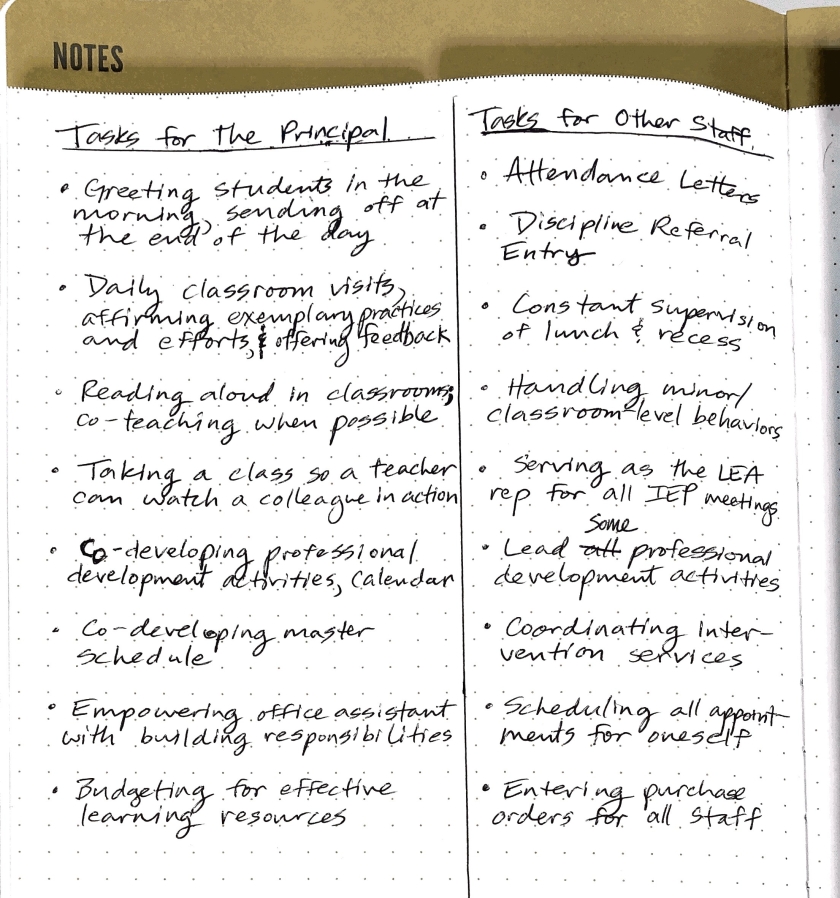“What is my job on the planet?” is one question we might do well to ask ourselves over and over again. Otherwise, we may wind up doing somebody else’s job and not even know it.” – Jon Kabat-Zinn, Wherever You Go, There You Are, pg. 206
In a previous post, I posed the question: “If you knew that your last day at your school was tomorrow, how would you decide to spend your time?” I offered my own response (spending time in classrooms, ignoring email, etc.). Yet I didn’t address a possible follow up question, one that couches us in our daily realities: How do I find the time to spend with students and teachers in classrooms?
This is a reasonable concern. The emails in our inbox don’t magically disappear. Requisitions need to be approved and evaluations have to be completed. What helped me prioritize my limited time in school is to ask myself a follow-up question (adapted from a chapter title in Kabat-Zinn’s book): What is my job with a capital J?
To find out, I created a T-chart. Next, I looked back on my calendar and started listing all of the tasks I had completed in the past along with what I remembered doing but didn’t schedule. On the left side, I wrote down all of the tasks that should belong to me as a school principal and instructional leader. On the right side, I listed tasks that were my responsibility as a principal but didn’t necessarily need to be completed by me.

Here’s the list. It’s evolving. For example, I still do some data entry for discipline. I also tend to take care of a few purchase orders because I get uptight about our school budget. But overall, this process was both freeing and empowering. Freeing because I could give myself permission to not feel like I needed to be everywhere at once. Instead I’ve learned to trust staff to be responsive to students’ needs. Empowering because I am finding that staff members who I have asked to take on certain responsibilities are doing as good if not a better job than I would. For example, some of our most popular professional learning experiences have been facilitating by our teachers. I had as much to learn as anyone.
To be clear, I don’t value my tasks over what others might accomplish with me. Everything is important. What I know is that principals cannot do it all. So we have to be selective about how we choose to prioritize our time every day. If our expertise and efforts are best served as instructional leaders, then we have to find ways to delegate some of the non-instructional tasks to other staff members in order to be most effective.
What tasks have you found to be essential or nonessential to your role as a school principal and instructional leader? How did you re-organize responsibilities? Please share in the comments.

